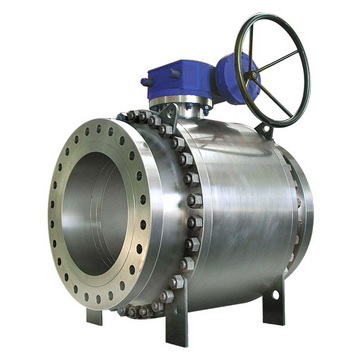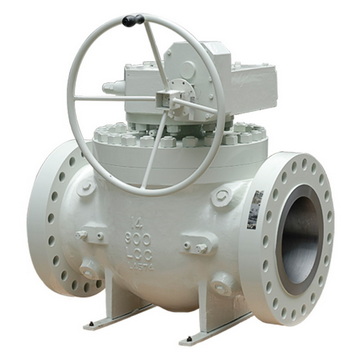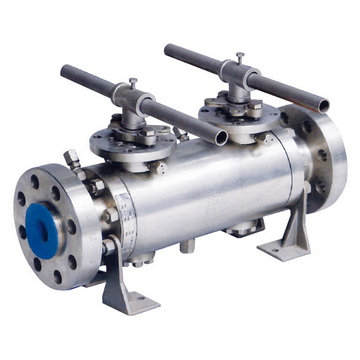Benefits of Using Stainless Steel Ball Valves in Chemical Processing Systems
Content Menu
● What Is a Stainless Steel Ball Valve?
● Key Benefits of Stainless Steel Ball Valves in Chemical Processing Systems
>> Superior Corrosion Resistance
>> High Temperature and Pressure Tolerance
>> Ease of Maintenance and Cleaning
>> Precise Flow Control and Tight Sealing
>> Versatility Across Chemical Processing Applications
>> Compliance with Industry Standards
● Extended Applications of Stainless Steel Ball Valves in Detail
>> Seawater and Marine Environments
>> Brewing and Beverage Industry
>> Petrochemical and Oil Refining
>> Pharmaceutical and Food Processing
>> Waste Management and Environmental Safety
>> Automated and Manual Operations
● Frequently Asked Questions (FAQ)
>> 1. Why are stainless steel ball valves preferred in chemical processing?
>> 2. Which stainless steel grade is best for corrosive chemical environments?
>> 3. Can stainless steel ball valves be used in sanitary applications?
>> 4. How do stainless steel ball valves improve safety in chemical plants?
>> 5. Are stainless steel ball valves suitable for automated control systems?
Introduction
In the demanding world of chemical processing, selecting the right valve is critical for ensuring system efficiency, safety, and longevity. Among various valve options, stainless steel ball valves have emerged as a preferred choice due to their unique properties tailored to meet the challenges of chemical environments. This article explores the multiple benefits of stainless steel ball valves, focusing on their applications, advantages, and why they are indispensable for chemical processing systems.

What Is a Stainless Steel Ball Valve?
A stainless steel ball valve uses a hollow, pivoting ball made of stainless steel to regulate fluid flow. The valve operates by turning the ball 90 degrees with an external lever or actuator, either aligning the hollow ball bore with the flow path to allow fluid passage or turning it perpendicular to block flow. Constructed mainly from stainless steel, these valves exhibit excellent corrosion resistance, high mechanical strength, and resilience in harsh chemical environments.
Key Benefits of Stainless Steel Ball Valves in Chemical Processing Systems
Superior Corrosion Resistance
Stainless steel ball valves resist corrosion from acids, alkalis, salts, and other aggressive chemicals common in chemical processing plants. This resistance ensures long service life and prevents valve failure or leaks, which can lead to costly downtime or safety hazards. Grades like 316 stainless steel, containing nickel and molybdenum, excel in resisting even highly aggressive substances.
High Temperature and Pressure Tolerance
Chemical processes often occur under high temperature and high pressure conditions. Stainless steel ball valves maintain stable mechanical properties and sealing performance even at elevated temperatures and pressures, making them ideal for petrochemical refining, synthesis reactions, and high-pressure chemical transfer.
Strength and Durability
The robust construction of stainless steel provides excellent durability against mechanical wear, pressure surges, and fluid dynamics. Stainless steel ball valves withstand the rigors of high-flow rates and frequent operation cycles without degradation, reducing maintenance needs and extending operational time.
Ease of Maintenance and Cleaning
In chemical processing, cleanliness is crucial to avoid cross-contamination and ensure product integrity. Stainless steel's smooth surface resists buildup, while the valve design allows easy disassembly for cleaning and servicing. This makes stainless steel ball valves suitable for sanitary applications even beyond chemical processing, such as pharmaceuticals and food production.
Precise Flow Control and Tight Sealing
Accurate flow regulation is vital for chemical dosing and mixing. Stainless steel ball valves provide quick, quarter-turn operation with tight sealing capabilities that minimize leaks and prevent hazardous material exposure. This precision protects workers, processes, and the environment.
Versatility Across Chemical Processing Applications
Stainless steel ball valves are versatile and used throughout chemical plants for:
- Handling corrosive acids, bases, and solvents
- Accurate chemical dosing and blending
- Transfer and containment of volatile chemicals
- Managing waste streams and effluents
- Water and wastewater treatment

Compliance with Industry Standards
These valves often comply with international standards such as API, ASME, ISO, and CE, ensuring conformity with safety and quality regulations essential in chemical environments.
Extended Applications of Stainless Steel Ball Valves in Detail
Seawater and Marine Environments
In coastal and offshore chemical processing, valves face the harsh challenge of seawater corrosion and extreme weather conditions. Stainless steel ball valves, particularly those made from 316 stainless steel, withstand this environment excellently. They are widely used in desalination plants and offshore drilling platforms to control fluid flow reliably while resisting saltwater corrosion.
Brewing and Beverage Industry
Though outside strict chemical processing, the brewing industry demands corrosion resistance and sanitary valve design. Stainless steel ball valves are employed to control the flow of wort during mashing—a corrosive and high-temperature process—because plastic or iron valves would degrade too rapidly in these conditions. The sanitary design also facilitates cleaning and prevents contamination.
Petrochemical and Oil Refining
Refining crude oil involves aggressive chemicals, high temperatures, and high pressures. Stainless steel ball valves provide tight shut-off and durability against sulfur compounds and corrosive hydrocarbons. Their reliable operation is critical for safety and efficiency in refining processes.
Pharmaceutical and Food Processing
Sanitation is paramount in pharmaceutical and food applications. Stainless steel ball valves meet stringent regulatory hygiene standards, allowing easy cleaning to prevent microbial contamination. This versatility makes them ideal for use in both chemical and bio-chemical processing sectors.
Water Treatment Facilities
Controlling water flow in treatment plants involves corrosive chemicals and varying pressures. Stainless steel ball valves ensure reliable operation despite these challenges while resisting corrosion from treated or untreated water chemicals.
Waste Management and Environmental Safety
In chemical plants, managing hazardous and chemical waste requires valves that reliably isolate waste streams and control disposal processes. Stainless steel ball valves provide leak-proof containment essential for environmental compliance and worker safety.
Automated and Manual Operations
Stainless steel ball valves are available in manual, electric, and pneumatic actuator configurations, allowing integration into automated control systems or manual operation depending on process requirements.
Conclusion
Stainless steel ball valves offer unmatched advantages in chemical processing systems, including exceptional corrosion resistance, high durability, reliable sealing, and precise flow control. Their ability to withstand aggressive chemicals, extreme temperatures, and pressures combined with ease of maintenance and compliance with industry standards makes them an ideal solution across various chemical, petrochemical, marine, pharmaceutical, and food industries. Choosing stainless steel ball valves ensures enhanced system safety, reduces downtime, and extends operational life—a smart investment for any demanding chemical processing environment.
If you are looking for high-quality stainless steel ball valves tailored to your specific chemical processing needs, contact us today for customized OEM solutions designed to optimize your system's performance and reliability.

Frequently Asked Questions (FAQ)
1. Why are stainless steel ball valves preferred in chemical processing?
They resist corrosion from harsh chemicals, operate reliably under high pressure and temperature, and provide precise, leak-proof flow control essential in chemical processes.
2. Which stainless steel grade is best for corrosive chemical environments?
316 stainless steel, due to its enhanced corrosion resistance from added nickel and molybdenum, is preferred for aggressive acids, saltwater, and other corrosive media.
3. Can stainless steel ball valves be used in sanitary applications?
Yes, their smooth surfaces, ease of cleaning, and compliance with sanitary standards make them suitable for pharmaceutical, food, and beverage industries as well as chemical processing.
4. How do stainless steel ball valves improve safety in chemical plants?
They provide tight shut-off to prevent leaks, minimize exposure to hazardous chemicals, and withstand harsh operational conditions, thus protecting workers and environment.
5. Are stainless steel ball valves suitable for automated control systems?
Yes, they are available with manual or automated actuators, allowing integration into remote operation and process automation systems.
Hot tags: Benefits of Stainless Steel Ball Valves in Chemical Processing, Stainless Steel Ball Valves for Chemical Industry, Corrosion Resistant Stainless Steel Ball Valves, Advantages of Stainless Steel Ball Valves in Processing Plants, Durable Stainless Steel Ball Valves for Chemical Systems, Stainless Steel Ball Valve Applications in Chemical Processing, High Performance Stainless Steel Ball Valves for Chemicals, Why Use Stainless Steel Ball Valves in Chemical Systems, Stainless Steel Ball Valves for Industrial Chemical Plants, Long Lasting Stainless Steel Ball Valves in Chemical Processing